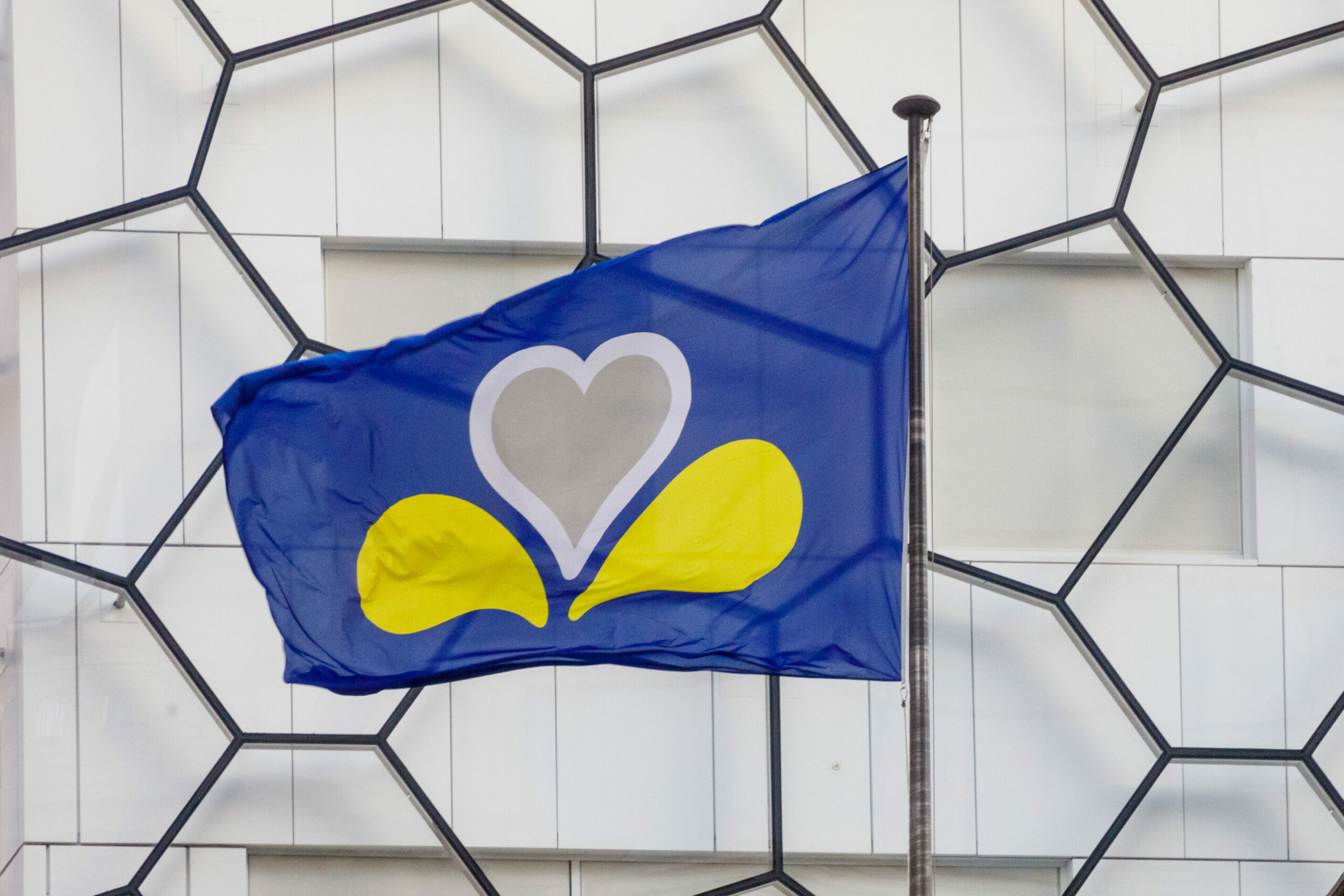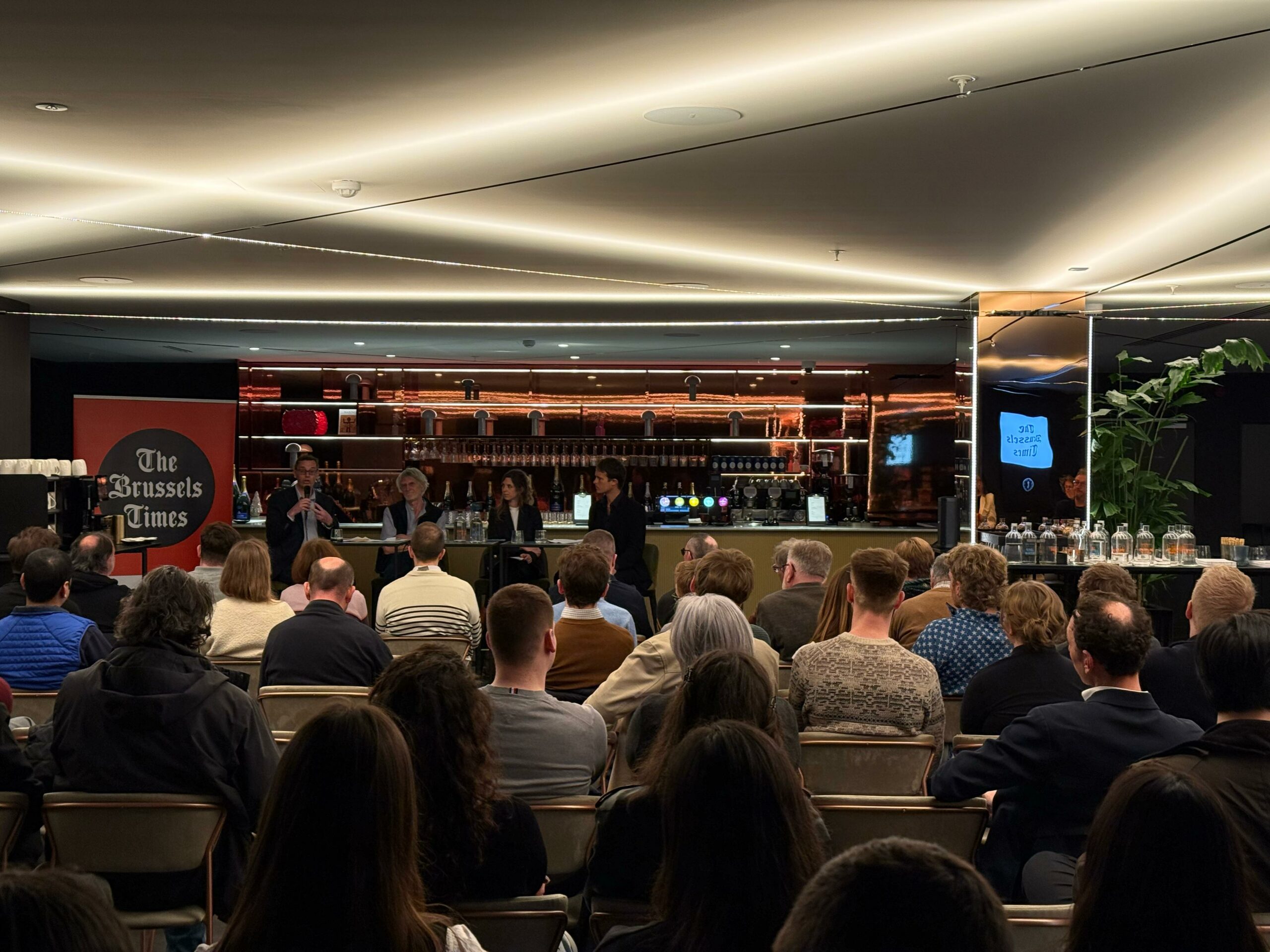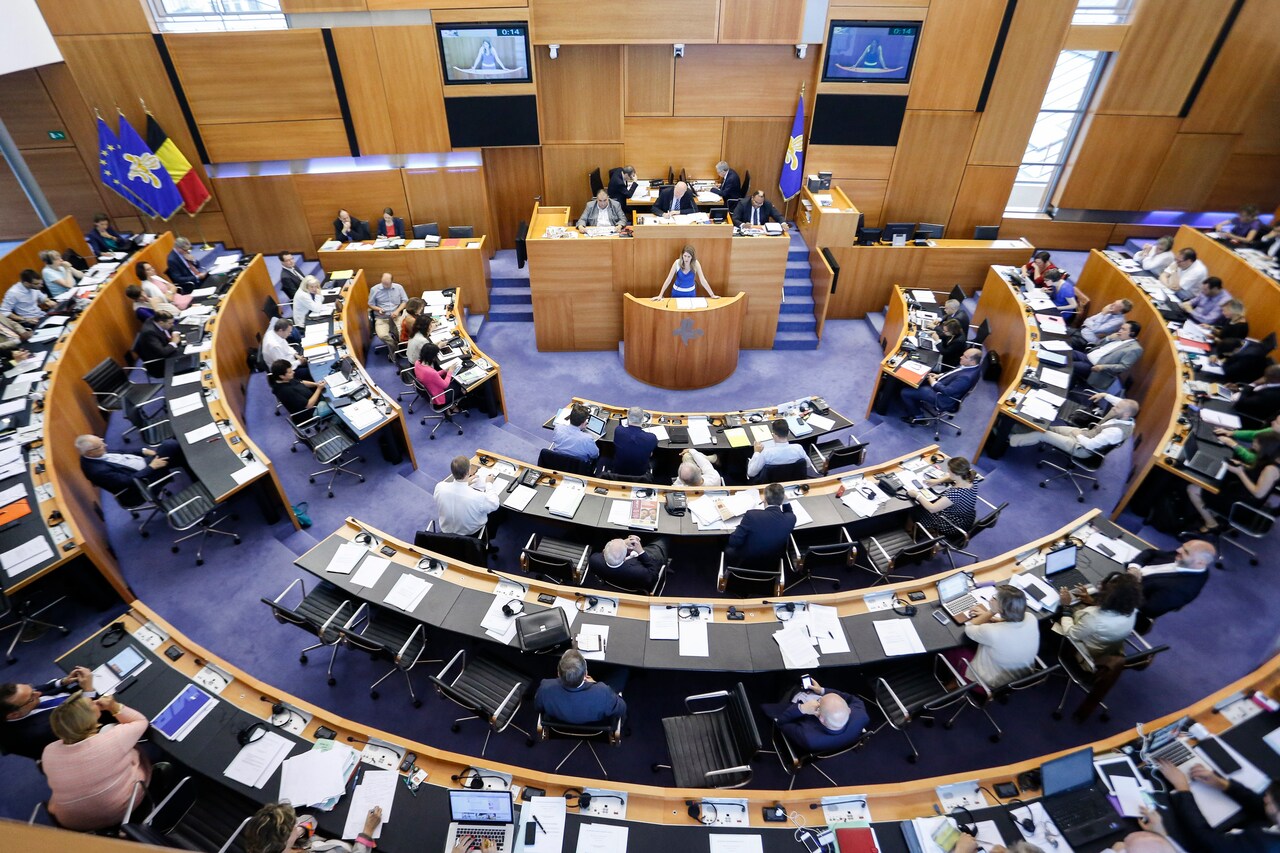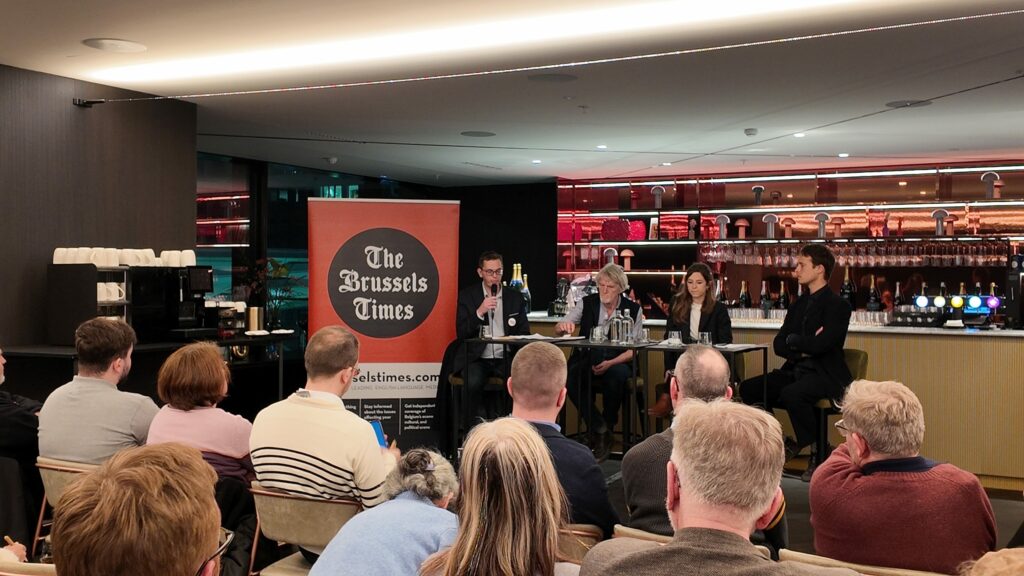In a debate hosted by The Brussels Times at the Cardo Brussels Hotel on Tuesday, philosopher Philippe Van Parijs, professor of Constitutional Law at UCLouvain Céline Romainville, and Vista Party President Jan Wostyn discussed the current political deadlock in Brussels.
With Brussels having been without a government for over nine months, the clock is ticking for the parties at the negotiation table. Negotiations have stalled after the Flemish party Open VLD demanded the inclusion of N-VA in a potential coalition, which the Francophone party PS strictly opposes.
To form an administration in the Brussels-Capital Region, a potential government needs a majority in both the French- and Dutch-speaking electoral colleges.
While PS, MR, and Les Engagés have agreed to form a coalition in the French-speaking electoral college, Open VLD has refused to enter a coalition with Groen, Vooruit, and CD&V without N-VA also being involved.
Why Open VLD wants N-VA in the government

Brussels region flag pictured outside the Brussels Parliament. Credit: Belga
“There are three main reasons why VLD wants to have N-VA on board,” explained Flemish left-wing nationalist Vista Party President Jan Wostyn. “Most importantly, the previous government left the region with a budget deficit, which is now about 25%. The budget situation is so dramatic that I think Open VLD realizes that it's almost impossible for the Brussels region to get out of this by itself. At some point, they will need support from the federal government.”
With N-VA leading Belgium's new Federal Government coalition, Wostyn thinks the Flemish nationalist party's inclusion in the Brussels Government could help negotiate important loans with banks to ease budget issues in Brussels. Another reason to include N-VA in the coalition could be the federal government’s decision to merge the police zones in Brussels.
“I think VLD realizes that if they want to make that work, they need N-VA on board, they need the federal government on board,” he added. The Vista president also explained that the liberals need N-VA to change the electoral system, which is seen as “outdated.” “Today, it is impossible to get a two-thirds majority in the federal parliament and a double majority in the two communities without N-VA,” he stated.
Does the electoral system still serve Brussels?

Credit: Zyan Barragan/ The Brussels Times
The complicated political system in Brussels is not only impacting the formation of the new government; it also affects everyday people, the panellists argued. “The double-layered nature of the federal government in Brussels is leading to a very difficult institutional landscape for the people,” said Céline Romainville, professor of Constitutional Law at UCLouvain.
“What we see in Brussels is a level of complexity that is unseen on the federal level. [...] If you are a doctor in Brussels, for example, and you just want to have a project in your neighbourhood to help people with addiction, sometimes you have six different laws applying to you,” she noted.
Philosopher and regular The Brussels Times contributor Philippe Van Parijs agreed that the political system needs reform and explained that the system of the two electoral colleges was set up to protect the Dutch-speaking minority. But now, the system would no longer make sense.
“We are in a situation in which we have institutions that were concocted, that were imagined, that were put into place for a process that no longer exists,” he argued.
Van Parijs highlighted that Flemish schools today have four times as many French-speaking students as Dutch-speaking ones and that a large number of Brussels citizens are of foreign origin. “It's true that the Brussels population has changed a lot, but I would argue at the same time that Belgium has changed as well," Wostyn concurred.
The panellists noted that Flanders and Wallonia have grown apart over the past few years and that PS refusing to work with N-VA and the current political crisis gripping the capital is part of a bigger issue.
“I think it's a power struggle over whether Francophone parties are willing to have a Flemish nationalist party in the government. The Flemish nationalists want to have a stronger Flemish influence all over Belgium, and that naturally also includes Brussels,” Wostyn said. As long as Open VLD doesn’t want to let N-VA go or PS will not lift its veto, the system will remain in a deadlock.
No government, no budget reforms

Brussels Parliament. Credit: Belga
The budget plays an important role in Brussels' government formation. Roughly €4.35 million are added to the deficit every day, according to Orlando Whitehead, The Brussels Times managing director, based on regional budget data. But budget reforms are impossible without a new government.
“You cannot have budgetary reforms in current affairs,” Romainville pointed out. “Until you have a real government, it's very complicated, if not impossible, to have budgetary policies. Because what is a real government? It's a government that has a budget and that can decide and make choices.”
Related News
- Brussels negotiators meet again but without Open VLD
- Hundred citizens demonstrate against the delay of Brussels government formation
What chance is there to escape the deadlock? Wostyn thinks that Brussels' debt, which has reached more than €15 billion in 2025, will likely lead to a downgrade of the Brussels credit rating in June. This, in turn, will hike borrowing costs for the city.
“After a formal downgrade, I think that's a political opportunity for some parties to say, 'Okay, we need to act.' But I wouldn't exclude the possibility that even that is still not enough, and that we actually need to get to the point where some payments for certain organizations, for certain basic services, can no longer be made for politicians to really say, 'We need to change.'”
Van Parijs has a different vision: “I think the way forward is what was started last night, that is, you get people to discuss the substance, but then at some point, you need to make a compromise.”
The event, "The Future of Brussels," took place on 25 March from 18:30 to 20:30 at the Cardo Brussels Hotel. To stay up to date on the latest The Brussels Times events on the future of the capital, follow us on Bluesky and Facebook.

